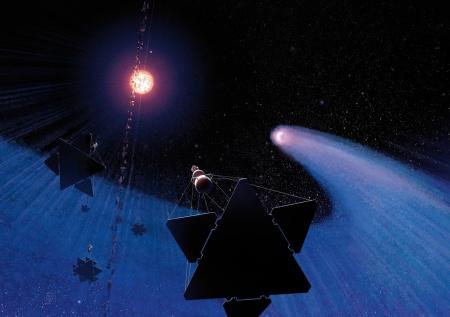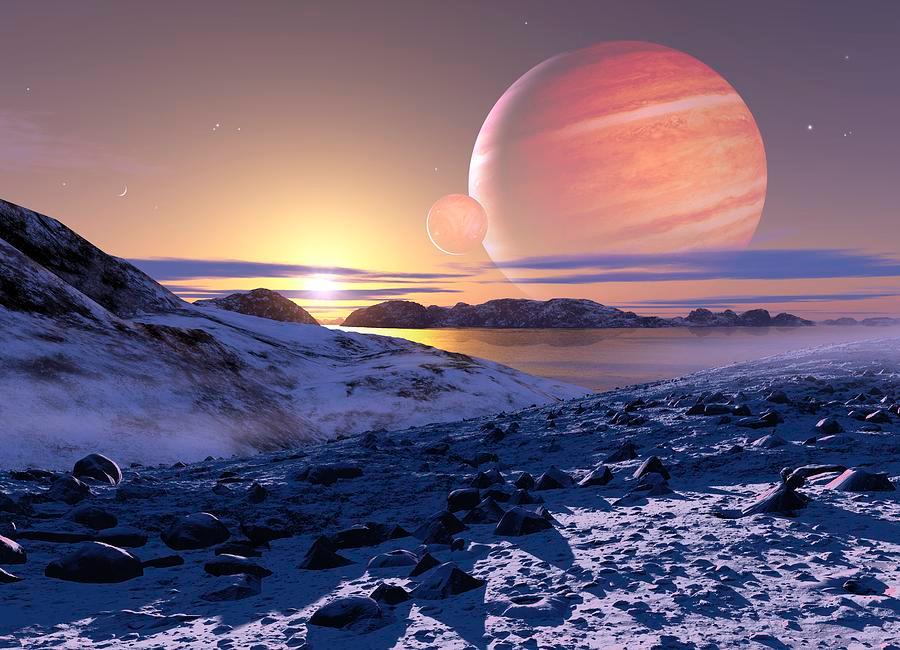
Comet-like exoplanet cruises near stellar poles

The GJ436b exoplanet follows an elliptical orbit over the poles of its star, researchers from the Swiss University of Geneva have discovered.
The exoplanet, known for its huge cloud of gas, also has a very special orbit, according to an article published in the prestigious Nature magazine earlier this month.
Instead of turning in the equatorial plane of the star, the planet passes almost above the stellar poles and unlike the planets of the solar system, it forms a flat ellipse.
“This planet is under enormous tidal forces because it is incredibly close to its star, barely three percent of the Earth-Sun distance,” Vincent Bourrier, researcher at the department of astronomy of Geneva University is quoted as saying in a press releaseExternal link.
“The star is a red dwarf whose lifespan is very long, the tidal forces it induces should have since circularised the orbit of the planet, but this is not the case,” he continues.
Bourrier is also the first author of the study and a member of the European project FOUR ACES under the EU’s Horizon 2020 research programme.
Massive and distant planet
The discovery about the orbital inclination of GJ436b is the latest piece of a puzzle that has apparently baffled astronomers for a decade.
The reasons for the circular orbit could be the existence of an unknown, more massive and distant planet, says Christophe Lovis, researcher and co-author of the study.
The calculations which measured the orbital inclinations also predict that the planet has not always been so close to its star, and the “evaporating planet” would not always have evaporated.
“Our next goal is to identify the mysterious planet that has upset this planetary system,” Bourrier is quoted as saying.

More
Thousands of planets – but is there life out there?

In compliance with the JTI standards
More: SWI swissinfo.ch certified by the Journalism Trust Initiative


























You can find an overview of ongoing debates with our journalists here . Please join us!
If you want to start a conversation about a topic raised in this article or want to report factual errors, email us at english@swissinfo.ch.